The Ultimate Guide to Managing Property Management Fees and Expenses
Understanding Property Management Fees
What Are Property Management Fees?
Property management fees are the costs property owners pay to professional management companies or independent property managers to handle daily operations, tenant relations, maintenance, and financial management. These fees vary depending on the type of property, location, and services provided.
Types of Property Management Fees
Monthly Management Fee – A percentage (typically 8-12%) of the monthly rental income charged for overseeing the property.
Leasing Fee – A one-time fee (50-100% of one month’s rent) for finding and screening new tenants.
Maintenance Fees – Costs incurred for repairs, routine maintenance, and emergency fixes.
Vacancy Fees – Charged when the property is unoccupied to cover ongoing expenses.
Eviction Fees – Costs related to legal proceedings and tenant removal.
Inspection Fees – Charged for conducting periodic property inspections.
Advertising and Marketing Fees – Covers costs associated with listing the property and finding tenants.
Lease Renewal Fees – Charged when a lease is extended for an existing tenant.
Understanding these fees is crucial for property owners to anticipate costs and evaluate the cost-effectiveness of hiring a property manager.
How to Reduce Property Management Costs
Negotiate Fees
One of the most effective ways to manage property management expenses is by negotiating fees with your property manager. Many companies are open to discussing pricing, especially if you own multiple properties or commit to long-term contracts.
Request a breakdown of services included in the management fee.
Compare pricing with other property management firms.
Seek volume discounts for multiple properties.
Negotiate performance-based incentives instead of fixed fees.
Perform Routine Maintenance
Preventative maintenance helps avoid costly emergency repairs. Scheduling regular inspections and addressing small issues before they become major problems can save thousands over time.
Conduct seasonal inspections to check for leaks, electrical issues, and HVAC performance.
Develop a preventive maintenance schedule for plumbing, roofing, and pest control.
Work with trusted contractors for cost-effective repairs and maintenance.
Consider Partial or DIY Management
If you have experience in property management, you can reduce costs by handling some tasks yourself instead of outsourcing everything to a professional company.
Manage tenant screening and leasing yourself.
Handle basic maintenance and repairs.
Hire a property manager only for legal compliance and emergency handling.
Streamline Tenant Screening
Finding reliable tenants reduces turnover costs and minimizes property damage. A strict screening process helps ensure long-term occupancy and lower management costs.
Conduct thorough background checks, including credit, employment, and rental history.
Require security deposits to cover damages.
Set clear lease terms and policies to avoid legal disputes.
Maximizing ROI While Managing Expenses
Optimize Rental Pricing
Setting the right rental price is essential for maintaining cash flow while keeping your property competitive in the market.
Research local rental trends to determine competitive pricing.
Adjust rent seasonally or in response to market demand.
Offer incentives such as discounted first-month rent to attract long-term tenants.
Minimize Vacancy Rates
A vacant property results in lost income and additional expenses. Keeping your property occupied reduces management fees associated with re-leasing.
Offer lease renewal incentives to retain tenants.
Market vacancies early to minimize transition periods.
Improve tenant relations to encourage long-term stays.
Use Technology to Reduce Costs
Technology plays a significant role in optimizing property management operations, reducing costs, and improving efficiency.
Utilize property management software to automate rent collection and maintenance requests.
Implement smart home technology to monitor utilities and reduce energy costs.
Use virtual tours and online marketing to reduce advertising expenses.
By understanding property management fees and implementing cost-effective strategies, property owners can maximize profits while minimizing unnecessary expenses. The next section will focus on financial planning, legal considerations, and leveraging professional resources to further optimize property management costs.

Get a Free Rental Analysis
Want to know how much your home will rent for? We’ll send you a free rental report!
Financial Planning for Property Management
Create a Budget for Property Expenses
A well-structured budget helps property owners anticipate expenses and manage cash flow efficiently. A comprehensive budget should include:
Fixed costs (mortgage, insurance, property taxes)
Variable costs (maintenance, repairs, tenant turnover)
Emergency fund allocations
Property management fees
By maintaining a detailed budget, property owners can avoid unexpected financial strain and allocate funds effectively. It is also advisable to set aside a contingency fund for unforeseen expenses such as emergency repairs, tenant evictions, or property damage due to natural disasters.
Additionally, property owners should review their budget annually and make adjustments based on market conditions, property value appreciation, and changes in operating expenses.
Track and Analyze Expenses
Keeping track of all property-related expenses is crucial for financial success. Property owners should regularly monitor their spending to identify areas for cost reduction. Proper expense tracking allows landlords to determine profitability, optimize tax deductions, and avoid financial mismanagement.
Use property management software to track expenses efficiently and generate financial reports.
Categorize expenses properly (utilities, maintenance, insurance, management fees) to identify spending patterns.
Conduct periodic financial reviews and audits to detect unnecessary expenditures.
Set up automated payment systems to prevent late fees and maintain a positive credit rating.
By tracking expenses systematically, property owners can pinpoint inefficiencies and make informed decisions on cost-cutting strategies, ultimately improving their bottom line.
Reduce Utility and Operational Costs
Optimizing utility and operational expenses can contribute to higher profit margins while ensuring tenant satisfaction. Lowering energy and water usage, for instance, not only reduces costs but also promotes sustainability.
Install energy-efficient appliances and lighting to cut electricity consumption.
Encourage tenants to conserve energy and water through incentives and awareness programs.
Consider submetering utilities to charge tenants based on their individual consumption.
Regularly inspect HVAC systems, plumbing, and insulation to ensure efficiency and avoid costly breakdowns.
Negotiate with service providers for bulk discounts or alternative pricing structures.
Incorporating these strategies can significantly lower operational costs, improve tenant retention, and enhance the overall financial stability of rental properties.
Legal Considerations for Property Management Costs
Understand Local Regulations and Compliance
Property owners must comply with local laws and regulations regarding property management fees, tenant rights, and maintenance responsibilities. Staying updated on these laws helps property owners avoid legal disputes, fines, or penalties that could add to their expenses.
Stay informed about rent control laws, eviction policies, and security deposit regulations in your area.
Ensure lease agreements comply with state and federal regulations to prevent tenant lawsuits.
Avoid legal penalties by adhering to fair housing laws and anti-discrimination policies.
Consult a real estate attorney or property management expert to ensure compliance with changing laws.
Failure to comply with legal requirements can lead to costly court cases, fines, and damage to a landlord’s reputation. Proactive compliance helps prevent these issues before they arise.
Minimize Legal Disputes and Associated Costs
Legal disputes can be costly and time-consuming, significantly affecting profitability. Proactive measures can prevent conflicts with tenants and property managers, ensuring smooth operations.
Use clear, legally compliant lease agreements to set expectations and avoid misinterpretations.
Keep thorough records of tenant interactions, rent payments, property inspections, and maintenance requests.
Offer mediation services to resolve disputes before they escalate to legal action.
Establish a clear eviction process that adheres to local and state regulations.
Invest in landlord insurance to mitigate risks associated with legal claims.
Preventing legal disputes through clear communication, documentation, and adherence to regulations can save property owners substantial amounts in legal fees and court costs.
Leveraging Professional Resources to Cut Costs
Work with Cost-Effective Property Management Companies
Selecting an affordable yet reputable property management company can save costs while ensuring quality service. Not all property managers charge the same rates or provide the same level of service, so careful selection is crucial.
Compare multiple management firms based on pricing, services offered, and customer reviews.
Choose companies with transparent fee structures and no hidden costs to avoid unexpected charges.
Opt for performance-based contracts where managers earn incentives for reducing vacancies and optimizing property performance.
Assess whether hiring a full-service property manager or a partial-service provider would be more cost-effective for your needs.
By choosing a cost-effective and efficient property management company, landlords can delegate responsibilities while ensuring maximum returns on their investment.
Partner with Reliable Contractors and Service Providers
Building strong relationships with contractors and service providers can lead to discounted rates and better service. Since property maintenance is a major expense, working with trusted professionals helps ensure cost efficiency and timely repairs.
Work with reputable vendors and establish long-term partnerships for bulk discounts and priority service.
Get multiple quotes before selecting contractors to ensure competitive pricing.
Regularly review contractor performance and renegotiate contracts to align with market rates.
Consider working with a property management company that has in-house maintenance services, which may be more affordable than hiring third-party contractors.
Property owners who develop relationships with reliable service providers can enjoy consistent pricing, priority service, and improved cost savings.
By implementing strong financial planning, understanding legal obligations, and leveraging professional resources, property owners can effectively manage property management fees and expenses. The final section will explore advanced cost-saving techniques and strategic investments to maximize property value.

Advanced Cost-Saving Techniques for Property Owners
Implement Preventive Maintenance Strategies
One of the most effective ways to reduce property management expenses is by implementing a proactive maintenance plan. Preventive maintenance helps property owners avoid costly emergency repairs and extends the lifespan of property assets.
Schedule regular inspections for HVAC systems, plumbing, roofing, and electrical wiring.
Perform seasonal maintenance to prevent major issues, such as winterizing pipes or cleaning gutters.
Keep a checklist of recurring maintenance tasks and use property management software to track them.
Encourage tenants to report minor issues before they escalate into costly repairs.
Preventive maintenance reduces long-term expenses by addressing problems early and preventing larger, more expensive repairs down the line.
Optimize Tenant Retention Strategies
Tenant turnover is one of the biggest expenses property owners face. Reducing vacancy rates and maintaining long-term tenants can significantly lower costs related to advertising, property preparation, and lost rental income.
Offer lease renewal incentives such as minor rent discounts or upgraded amenities.
Maintain strong communication with tenants and promptly address their concerns.
Conduct regular tenant satisfaction surveys to understand their needs and improve retention rates.
Build a community atmosphere by organizing events or providing perks such as free Wi-Fi in common areas.
By keeping tenants satisfied and reducing turnover, property owners can save on marketing, tenant screening, and renovation costs associated with frequent leasing cycles.
Invest in Smart Technology for Cost Reduction
Technology plays a key role in optimizing property management expenses. Smart home automation and digital property management tools can help reduce overhead costs and improve efficiency.
Use smart thermostats, lighting, and security systems to enhance energy efficiency and reduce utility bills.
Implement digital rent collection and tenant portals to streamline payments and communication.
Invest in AI-powered property management software to automate maintenance requests and lease tracking.
Install remote monitoring systems to detect issues such as water leaks or HVAC malfunctions before they escalate.
By integrating technology into property management, landlords can enhance efficiency, reduce manual work, and lower operational expenses.
Strategic Investments to Maximize Property Value
Upgrade and Renovate Strategically
Investing in property upgrades can boost rental value and attract high-quality tenants. However, not all renovations provide a strong return on investment, so property owners should focus on cost-effective improvements.
Prioritize renovations that increase property value, such as kitchen and bathroom upgrades.
Opt for durable, low-maintenance materials to reduce long-term repair costs.
Improve curb appeal by maintaining landscaping, repainting exteriors, and upgrading common areas.
Consider energy-efficient upgrades, such as solar panels or new insulation, to lower utility costs and attract eco-conscious tenants.
Making smart investments in property improvements can increase rental income, reduce vacancy rates, and enhance property appreciation.
Diversify Revenue Streams
Property owners can enhance profitability by exploring additional revenue streams beyond traditional rent collection.
Offer premium services such as cleaning, package handling, or furnished rental options.
Charge for parking spaces, storage units, or pet fees where applicable.
Consider short-term rentals or corporate leasing to maximize revenue potential.
Monetize common areas by installing vending machines, laundry facilities, or coworking spaces.
Diversifying income sources can help offset property management costs and improve financial stability.
Final Thoughts on Managing Property Management Fees and Expenses
Effectively managing property management fees and expenses requires a combination of financial planning, strategic cost-cutting, and proactive property management. By implementing preventive maintenance, leveraging technology, optimizing tenant retention, and making smart investments, property owners can significantly reduce costs while maintaining high-quality rental properties.
Successful property management is an ongoing process that requires continuous monitoring and adjustments. By staying informed about market trends, legal requirements, and emerging technologies, landlords can position themselves for long-term profitability and sustainable growth in the real estate industry.
Suggested Relevant Links:
Choosing the Right Property Management Companies in Palm Beach
How Technology is Transforming Property Management in Palm Beach County
The Truth About Property Management Fees: How They Work for Landlords
How Property Managers Make Money While Helping Landlords Thrive
FAQ on Managing Property Management Fees and Expenses
1. What are typical property management fees?
Fees range from 8% to 12% of monthly rent, with additional costs for leasing, maintenance, and evictions.
2. How can I reduce management costs?
Negotiate fees, use property management software, implement preventive maintenance, and retain tenants to lower turnover costs.
3. What is the biggest expense in property management?
Maintenance and repairs are the most significant costs. Preventive maintenance helps minimize expensive emergency repairs.
4. Is hiring a property manager worth it?
For multiple properties or passive investors, it’s beneficial. If you have time and expertise, self-management saves money.
5. How does technology lower expenses?
Automation tools streamline rent collection, maintenance requests, and tenant communication, reducing labor costs.
6. What are common hidden fees?
Watch for maintenance markups, vacancy fees, lease renewal fees, and administrative charges in contracts.
7. How do I keep tenant turnover low?
Maintain good communication, address maintenance issues quickly, and offer lease renewal incentives.
8. How can I increase revenue without raising rent?
Offer paid parking, storage, premium services, or short-term rental options.
9. How do I track property expenses efficiently?
Use property management software like Buildium or AppFolio for automated tracking and reporting.
10. When should I reassess my management strategy?
Review annually or when unexpected costs arise to optimize expenses and improve efficiency.



